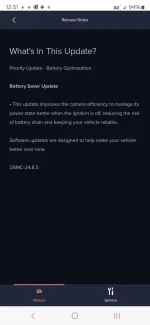Steve_C
SUPPORTING MEMBER
- Joined
- Sep 8, 2023
- Messages
- 502
- Reaction score
- 292
- Points
- 63
- My Lincoln
- 2023 Nautilus; 1998 Mk VIII
So are you thinking that normal transpac shipping can be fatal to our batteries? How do the Japanese and Koreans do it?
Fatal, no. Compromised, definitely! If not remedied desulfation will shorten battery longevity for sure!
I know one manufacturer (BMW) has a shipping plug attached to the Intelligent Battery management system (IBS) to curtail shipping drainage.
I cannot say what the others manufacturers are doing. Apparently, Lincoln has no system to stop vehicle parasitic draws from occurring during shipping.
It has been a failure at the dealership level to cycle these batteries up to full state of charge at delivery to dealer, then again at pre-delivery.
This, coupled with the excessive drain rate the the vehicle goes through while sitting on the lot (or at your residence) exasperates the issue.
Not that simple for the dealer to upkeep the batteries on a fleet of unsold vehicles. This all starts before dealer takes delivery.
If the vehicle battery is dead on arrival to port of entry it gets boosted to get it off the ship.
If this vehicle battery is dead at the port lot awaiting loading on to transport truck (carrier) it gets boosted.
If this vehicle battery is dead on transport truck at drop off to dealer, it gets boosted.
If this vehicle on the lot has a dead battery it gets boosted!
If this vehicle is at your residence and has dead battery...it gets boosted!
Everyone is happy except your poor tired battery that never reaches full state of charge throughout its cycles!
It is not a big deal to "reclaim" a slight to moderate de-sulfated battery. Problem is many folks have taken delivery off of dealer lots with batteries that have partial discharge, and during shipping, sitting & normal usage have not been able to cycle up to full charge state. In these situations, sulfation continues to erode battery performance & longevity.







